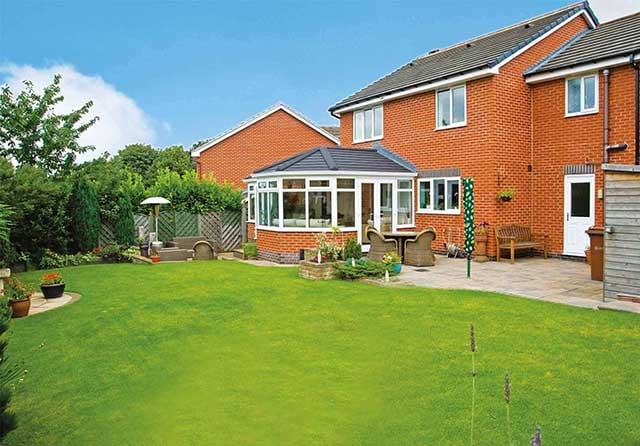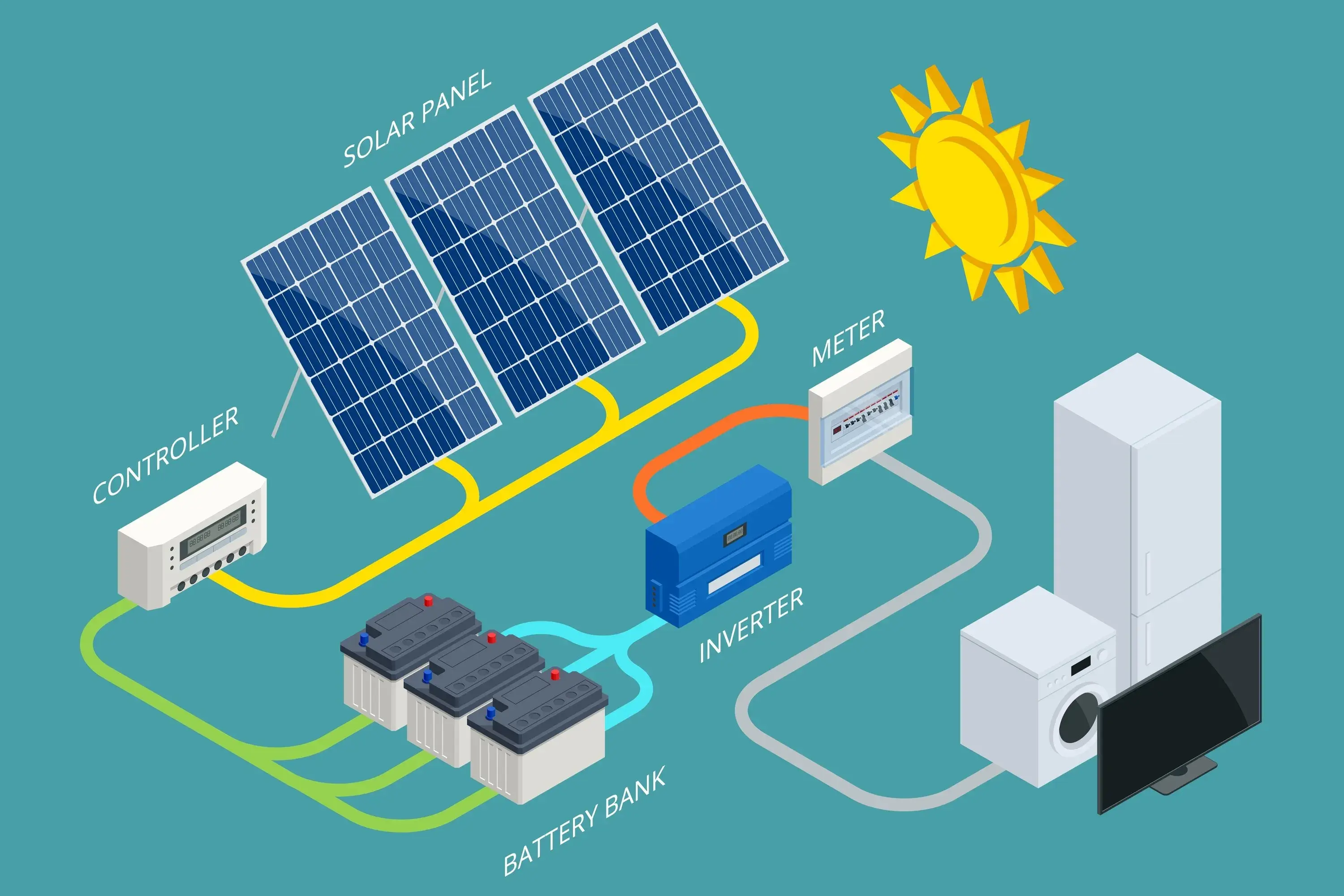If you’ve been weighing up the pros and cons of having a solar panel system installed in your home, you’re probably looking forward to a reduction in your energy bills, a contribution to a greener planet, and protection from any future electricity price hikes.
You might have even started to research a selection of local MCS certified solar panel installation companies.
If this sounds like you, it's possible that you're starting to come up with a list of questions to help you make the most informed decision about your solar panel installation.
One of the most common questions we get from our customers is about which type of inverter is best for their specific solar panel system.
In this article, we’re going to explain what an inverter is, why solar panels need inverters and the different types of inverter that can be included as part of your solar panel installation.
What is an inverter, and why do solar panel systems need them?
To answer this question, it’s important to first provide a quick overview of how solar panel systems work.
Solar panels are generally composed of multiple photovoltaic (PV) cells, which are crafted from a semi-conductive material like silicon.
As sunlight strikes the PV cells, the sun's photons dislodge electrons from the silicon atoms, leading to the generation of an electric current. This process is commonly known as the photovoltaic effect.
However, the electricity generated from the photovoltaic effect is initially in the form of 'direct current' (DC), which is not suitable for domestic use. To make it useful for powering your home, it must be transformed into an alternating current (AC).
This is where a solar panel inverter becomes useful, as it converts the direct current into usable alternating current.

What are the different types of solar panel inverters?
There are a number of different solar inverters available, each with unique features. We’re going to focus on two of the most common: string inverters and hybrid inverters.
String inverters
String inverters are commonly used in residential solar installations and work by aggregating the DC output from a series of interlinked solar panels before converting it to AC.
They are a popular choice due to their ease of installation, ease of maintenance and reasonable upfront costs. Price-wise, you can expect to invest between £500 and £1,500 for a string inverter.
However, it’s important to note that string inverters are reliant on electricity from the grid for their operation, which means that they stop producing energy during power outages.
So, if you’re in an area that is regularly affected by power outages, they may not be the right solution for you.
String inverters also don’t naturally enable you to store any excess electricity you generate, without additional batteries and components being connected to your system.
If you're a homeowner in an area with a reliable power supply and have no need to store surplus energy generated by your solar panels, a string inverter offers an efficient and cost-effective solution.
However, if your region experiences regular power outages or if you're interested in storing solar energy, a hybrid inverter might be a better choice.
Hybrid inverters
Hybrid inverters are the ideal solution if you’re looking for an efficient way to include battery storage as part of your solar panel installation.
A hybrid inverter manages the distribution of alternating current (AC) to your home for immediate use, whilst at the same time directing any surplus energy generated to an in-built storage battery. This stored electricity can then be used outside of daylight hours, improving the effectiveness and return on investment of your solar panel installation.
So if you’re looking to get the most out of your solar panel installation, one of the key benefits of a hybrid inverter is that you can often save more on your monthly energy bills, and are less reliant on electricity from the grid.
Another benefit of hybrid inverters is that they themselves do not work in a power cut however, since they are typically installed with batteries, if your battery is charged this electricity can be used in a power cut.
However, these benefits come with a cost, with the price of hybrid inverters typically being higher than that of string inverters, often starting from around £1200.
It’s also worth noting that the installation of hybrid inverters is also more complex due to their dual functionality, which may lead to an increase in the time and costs of your system setup.
Still unsure about choosing between a string inverter or hybrid inverter?
There are certainly pros and cons to both string and hybrid inverters, and it’s important to make the right decision based on your own specific circumstances.
Choosing the right inverter for your solar panel installation is likely to depend on a number of factors:
-
Budget: If initial upfront costs are a primary consideration, a string inverter might be more suitable.
-
Ease of installation: A string inverter is typically easier to install and maintain.
-
Backup power: For uninterrupted power supply during grid outages, hybrid inverters are the better choice since they have a built in battery.
-
Energy independence: Hybrid inverters offer greater control over energy usage and storage.
-
Grid reliability: In areas with unstable grid power, hybrid inverters provide a more consistent energy supply due to their installed batteries.
If you want to get an expert opinion about which inverter is going to be best for your specific needs, give Projects4Roofing a call.
Our team of experts are on hand to answer all your questions and make sure you have the ideal solar panel system to meet your needs.
We’re an MCS certified solar panel installer with more than a decade of experience managing roofing projects, and we’re proud to be a Which? Trusted Trader.
So, if you’re looking for an experienced and reliable solar panel installation partner, get in touch today and take the first step towards lower energy bills and making your home more energy efficient.


